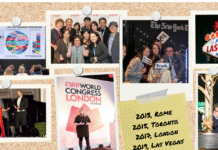Conversations, debates, and discussions on art, literature, politics, technology, and international policies marked the 16th edition of the five-day Jaipur Literature Festival 2023, held from 19 January in which more than 300 speakers from different fields took part.
Some of the concluding sessions from the first day of the Festival featured one of India’s leading pop icons and playback singers, Usha Uthup in conversation with the translator of her biography, Srishti Jha, along with journalist Sathya Saran.
International Booker Prize winner Geetanjali Shree, and translator Daisy Rockwell were in conversation with Sahitya Akademi Yuva Puraskar recipient Tanuj Solank. While talking about Geetanjali Shree’s novel, Maai, which was published about 30 years back, the trio also discussed how a daughter’s point of view differs from that of others and how the book breaks all stereotypes.
An expert panel consisting of the managing director, Teamwork Arts and festival producer, Sanjoy K Roy; recipient of the Eleanor Roosevelt Prize for Human Rights Lakshmi Puri; the UN Resident Coordinator for India, Shombi Sharp, Shyam Saran; writer Tshering Tashi; and the Ambassador of the European Union, Ugo Astuto, critically examined the way forward post-COP27.
In another session, author Tripurdaman Singh and politician Shashi Tharoor discussed the crisis of democracy.
Philanthropist and writer Sudha Murty in conversation with journalist Mandira Nayar discussed Murty’s first publishing experience when she was 29. Murty emphasized the importance of her mother tongue, Kannada, and the culture of the land.
Then eminent Sanskrit scholar and director of the Instituto Cervantes in New Delhi, Oscar Pujol, and the Ambassador of Poland to India Adam Burakowski brought glimpses of the popularity of Hindi in Europe, as they were seen in conversation with author and Indian diplomat Abhay K at a session titled ‘Global Hindi’.
Poet, lyricist, and screenwriter Javed Akhtar and actor Shabana Azmi discussed the differences and similarities between their respective fathers – poets Jan Nisar Akhtar and Kaifi Azmi – and their perspectives on love and romance. Akhtar spoke about the progressive writer’s movement and its origin from the All India Congress Conference which was presided by Munshi Premchand.
Journalist Ravish Kumar spoke with the editorial director of Rajkamal Prakashan Satyanand Nirupam and publisher and co-founder of Speaking Tiger Books Ravi Singh about ‘fear’ and its role in politics today. Kumar spoke at length about political prisoners, the rich, and the judiciary.
Nobel Prize-winning author Abdulrazak Gurnah shared his life’s experiences that have shaped his literary work. In conversation with publisher Alexandra Pringle, Gurnah took the audience through his childhood experiences, where he led a life of naivete and simplicity.
The third day featured Booker Prize-winning Srilankan author Shehan Karunatilaka in conversation with writer Nandini Nair.
International Booker Prize winner Geetanjali Shree, well-known Rajasthani and Hindi writer Nand Bhardwaj, Sahitya Akademi Award recipient and novelist Anamika, managing director and CEO of Bank of Baroda Sanjiv Chadha and author-translator and columnist Pushpesh Pant focused on the diversity of Hindi and the difficulty of ‘purifying’ it.
Archaeologists David Wengrow and Rebecca Sykes talked about primitive ancestors, barbarism, human instinct, the origin of states and civilizations, and their ties to the conflict between European society and indigenous discourse.’
A panel discussion with academic and author Toby Walsh, CEO of ABP Network Avinash Pandey, and author Anirudh Suri, in conversation with award-winning journalist Praveen Swami, focused on how technology has always seemed incomprehensible to humans and has made them question their knowledge.
An expert panel consisting of renowned journalists Praveen Swami, Manoj Joshi, and Nishtha Gautam were in conversation with author C Raja Mohan, to discuss In Hard Times, an important collection of essays edited by them, highlighting the significant challenges India faces today.
On the fourth day, ‘The Museums That Make Us’ featured Director of the Victoria and Albert Museum Tristram Hunt, Chief Secretary, Government of Rajasthan Usha Sharma, British sculptor Andrew Logan, archaeologist Richard Blurton and head of culture and learning programs at the British Library Jamie Andrews in conversation with managing director, Teamwork Arts and Festival producer Sanjoy K. Roy.
Author and philanthropist Rohini Nilekani were in conversation with celebrated journalist, author, and columnist Vir Sanghvi discussing Nilekani’s groundbreaking book Samaaj, Sarkaar, Bazaar – A Citizen-First Approach.
Jaipur BookMark
Jaipur BookMark, the festival’s conclave on the business of publishing, had a session on the ‘Mind, Body, Spirit Shelf’ that readers keep at their homes. Pariksith Singh said that the new generation is hungry for knowledge, but is crippled by its inability to share.
The Jaipur BookMark also had key sessions focused on translations, with several experts voicing their thoughts. Mini Krishnan of Oxford University Press acknowledged the potential of translations for reviving old books and giving them wider reach. The panel conveyed that the government, private organizations, and CSR initiatives need to come together to work toward promoting translations.
On the third day of Jaipur BookMark, a panel discussed various aspects of publishing children’s literature. The speakers discussed the gaps between publishers and their readers, and forayed into expanding the publishing of translations. The panel also gave insights into the changes and challenges the publishing industry faced post-pandemic, and the emerging trends with OTT, podcasts, and adaptations.
At another session, the panelists spoke about the influence that children’s books have on young minds and the responsibility and challenges that come with it, especially the writers and illustrators as creators. They discussed the importance of not having any gender-stereotypical approach toward children’s books when creating them.
A discussion titled ‘Growing up right – Nurturing young readers’ explored the importance of libraries where young people can spend time and gain knowledge. They discussed the possibilities of establishing free library networks, online discussion forums, and a book procurement policy by the government.
Another panel of speakers discussed the importance of building communities of readers. For a very long time, reader communities have shaped the industry but their importance has never been really understood. The panel talked about making efforts to strengthen these communities and educate them to promote readership.
















